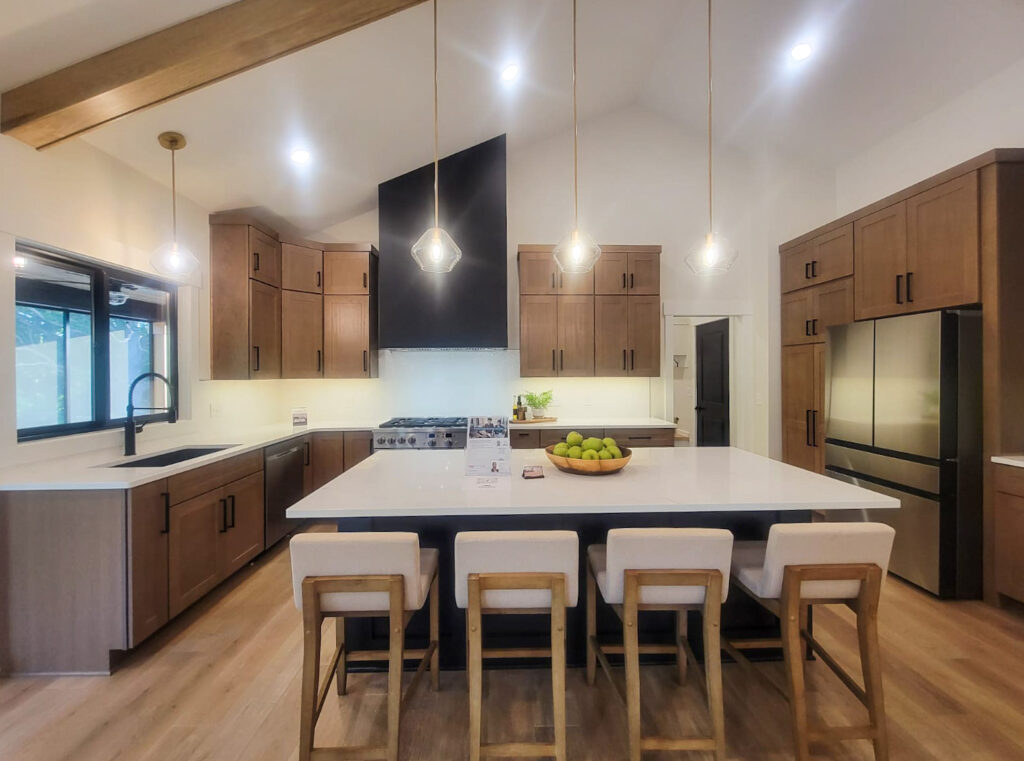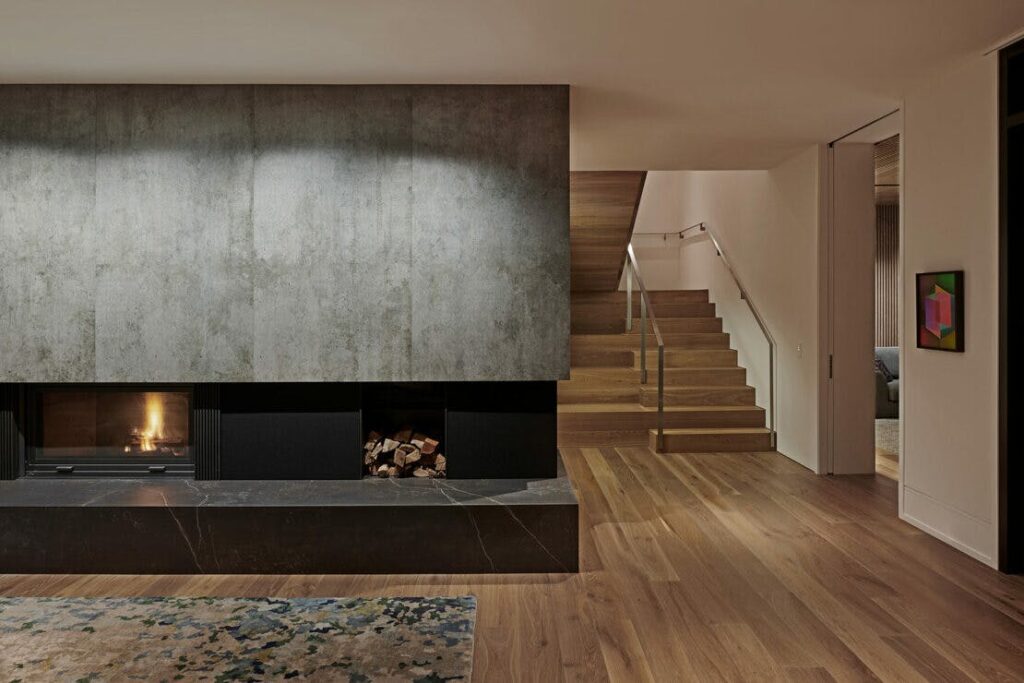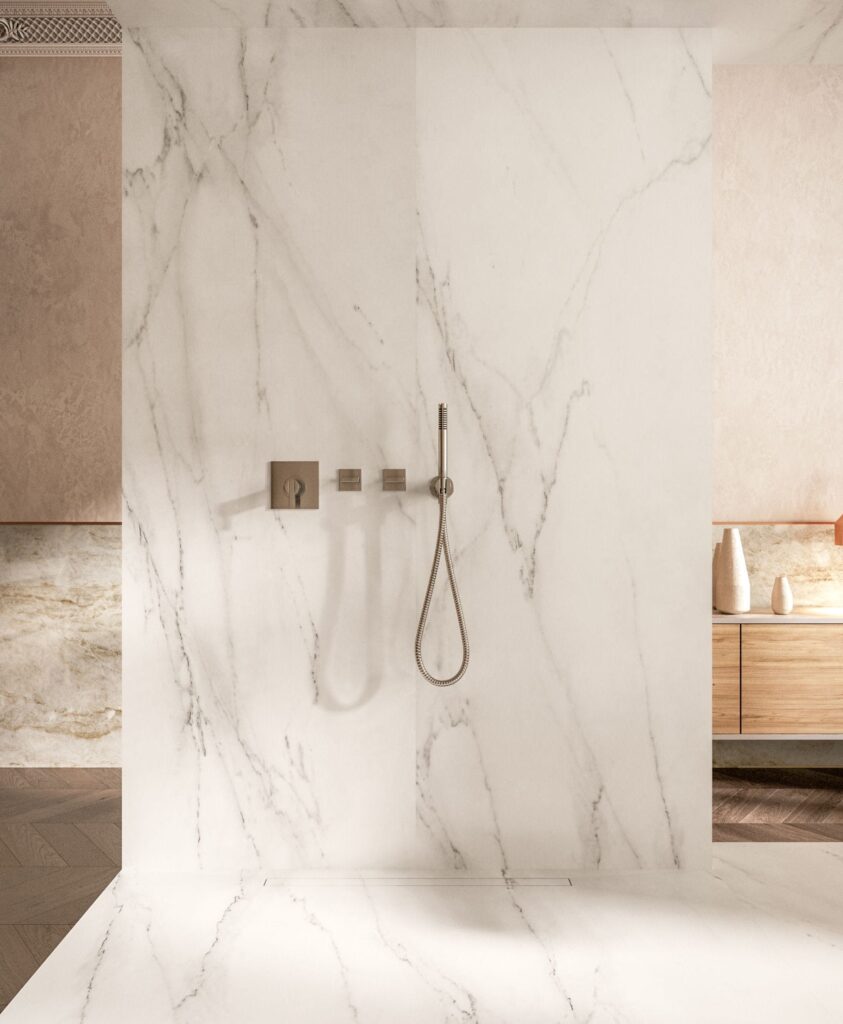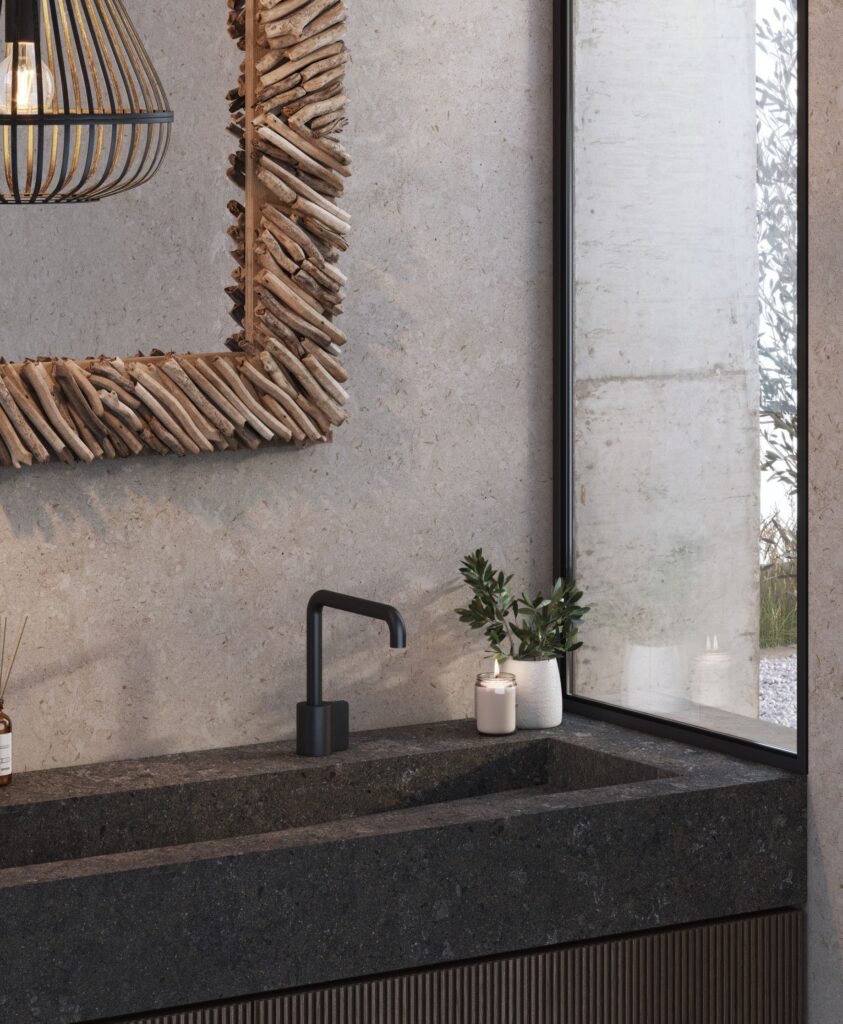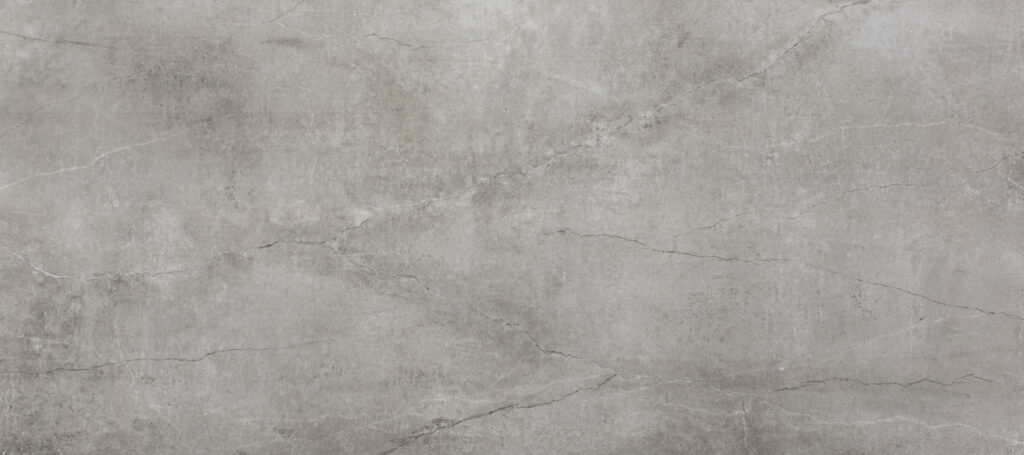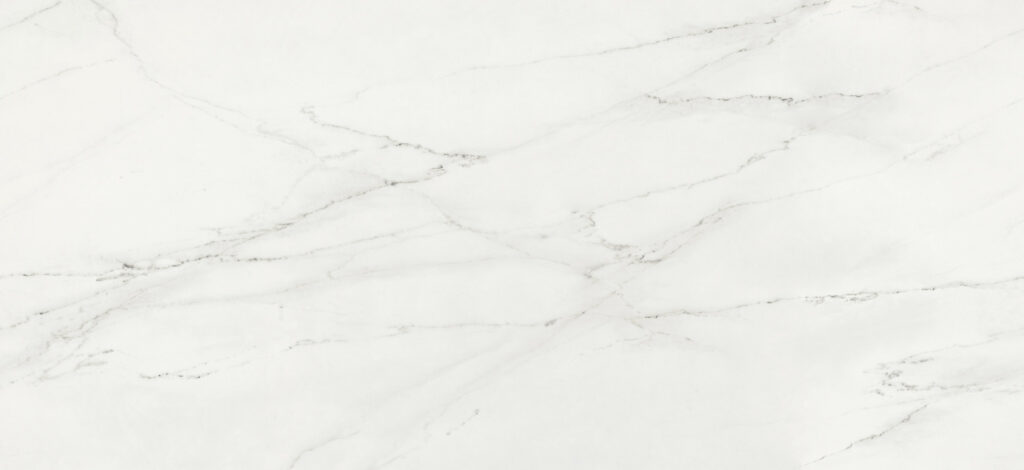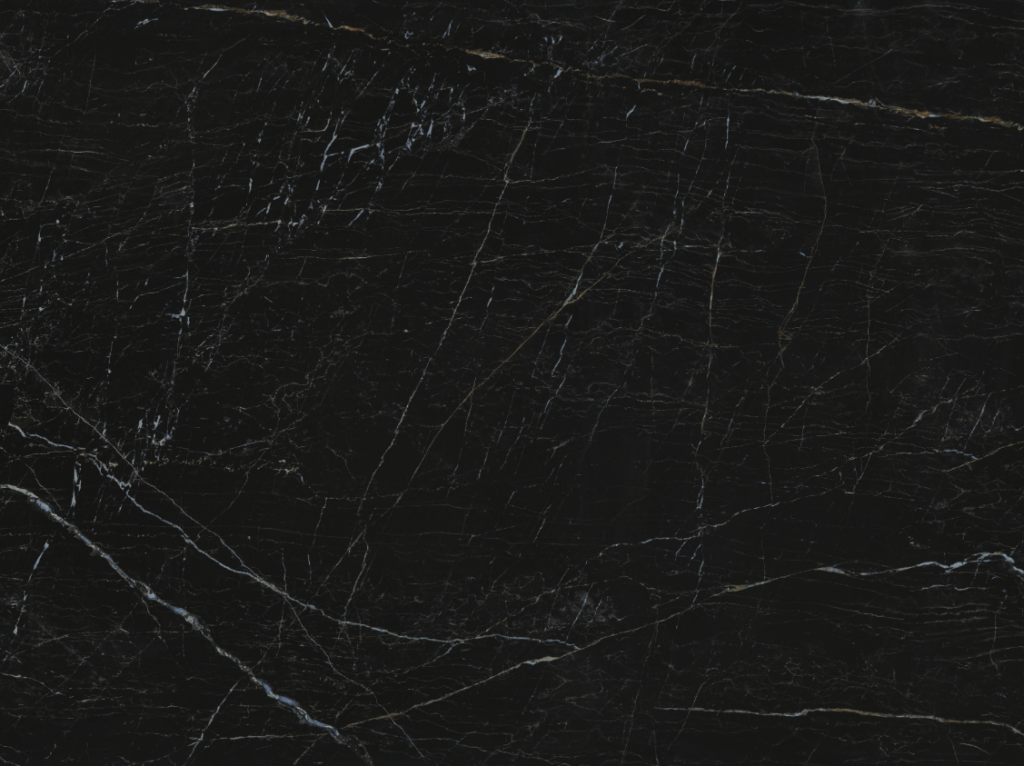Porcelain
Porcelain countertops are an increasingly popular choice for kitchen and bathroom surfaces due to their exceptional durability.
Porcelain is non-porous, antimicrobial/antibacterial/hygienic and food-safe, and waterproof. It is highly resistant to scratch and wear-resistant, heat, UV ray, freeze/thaw resistant, and stain resistant. It is also resistant to fading, making it suitable for areas exposed to sunlight.
Porcelain is created by firing a mixture of fine-grained clay, feldspar, silica, and other minerals that undergo a firing process at upwards of 2100 degrees Fahrenheit. This process results in a dense and durable material. Porcelain is not damaged by most chemicals. Hydrofluoric acid and its derivatives should be avoided. Porcelain is easy to maintain and durable; however, it is not damage-proof.
Porcelain Qualities

Heat Resistant

Stain Resistant
Low Maintenance

Wide Variety of Styles
Manufactured Material
Benefits & Considerations
Benefits
Durability
Porcelain countertops are highly durable and resistant to scratches, stains, and impact. They are designed to withstand the demands of daily use in the kitchen and bathroom, making them suitable for high-traffic areas.
Non-Porous Surface
Porcelain is a non-porous material, which means it does not absorb liquids. This makes porcelain countertops highly resistant to stains, including those caused by common kitchen or bathroom substances like coffee, wine, or oil. The non-porous surface also prevents the growth of bacteria and makes cleaning and maintenance easier.
Heat Resistance
Porcelain countertops are heat-resistant, allowing you to place hot pots and pans directly on the surface without worrying about damage. This feature provides convenience and peace of mind in the kitchen.
Versatility in Design
Porcelain countertops come in a wide range of colors, patterns, and finishes. They can mimic the look of natural stone, wood, concrete, or other materials, allowing you to achieve the desired aesthetic for your space. Whether you prefer a modern, contemporary, or traditional style, there are porcelain options to suit your taste.
Easy Maintenance
Porcelain countertops require minimal maintenance. Regular cleaning with mild soap and water is usually sufficient to keep them looking their best. Unlike natural stone countertops, porcelain does not require sealing or special treatments to maintain its appearance or durability.
Resistant to Fading
Porcelain countertops are highly resistant to fading, even when exposed to sunlight. This characteristic makes them suitable for both indoor and outdoor applications, allowing for consistency in design.
Longevity
With proper care, porcelain countertops can last for many years. They are highly resistant to wear and tear, maintaining their beauty and functionality over time. This durability translates into a long-lasting investment for your home.
Eco-Friendly
Porcelain is a sustainable and eco-friendly choice for countertops. It is made from natural materials and can be recycled. Additionally, its longevity reduces the need for frequent replacements, minimizing waste.
It’s worth noting that the exact features and advantages of porcelain countertops may vary based on the specific brand, manufacturer, and product line. Consulting with professionals or suppliers can provide more detailed information on the specific advantages of the porcelain countertops you are considering.
Considerations
Cost
Porcelain countertops can be more expensive compared to some other countertop materials, such as laminate or tile. The cost of porcelain can vary depending on factors such as the brand, design, size, and complexity of installation.
Brittle
Porcelain is a relatively brittle material compared to some other countertop options. It can chip or crack if subjected to a significant impact or force. Care should be taken when handling heavy objects or applying excessive force to prevent damage.
Weight
Porcelain countertops are heavy, which can present challenges during installation. They may require additional structural support to ensure proper stability and avoid potential damage to the cabinetry or surrounding areas. Adequate planning and assessment of the existing infrastructure are essential.
Limited Availability
While porcelain offers a wide range of design options, certain colors, patterns, or finishes may be less readily available compared to other countertop materials. Finding a specific style or design may require more effort or customization, potentially affecting the project timeline or cost.
Noise
Porcelain can produce a more resonant sound compared to some other countertop materials when objects are placed on its surface. This can result in a louder noise when dishes, utensils, or other items are dropped or moved.
Seams
Like any large countertop surface, porcelain countertops may require seams when covering larger areas. These seams can be visible, especially if not properly installed or if the design has patterns that need to align. The visibility of seams can vary depending on the specific product and installation techniques used.
It’s important to weigh these potential drawbacks against the benefits and specific needs of your project. Consulting with professionals or suppliers experienced in porcelain countertops can provide further guidance and help you make an informed decision.
Explore The Possibilities
Trying to envision options for your project?
Experiment with our visualizer tool, where you can choose from various products, styles and colors to compare how each one appears in a realistic space.
Start the Process
Featured Products
Porcelain Edge Profiles
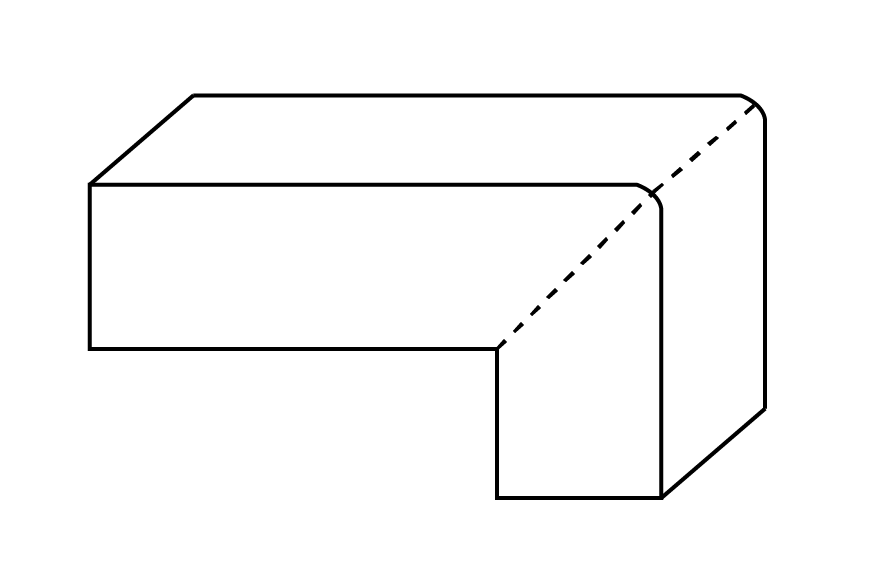
Build-Up Miter (2cm)
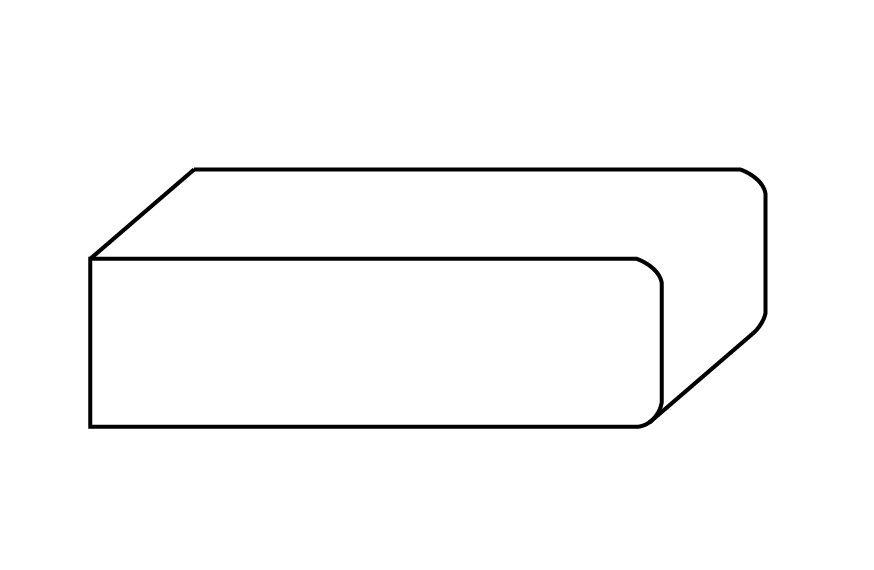
Eased (2cm)
Resources

Porcelain Countertop Care
How to Care for your Porcelain Countertops Porcelain is made from a variety of clays and other natural materials that

